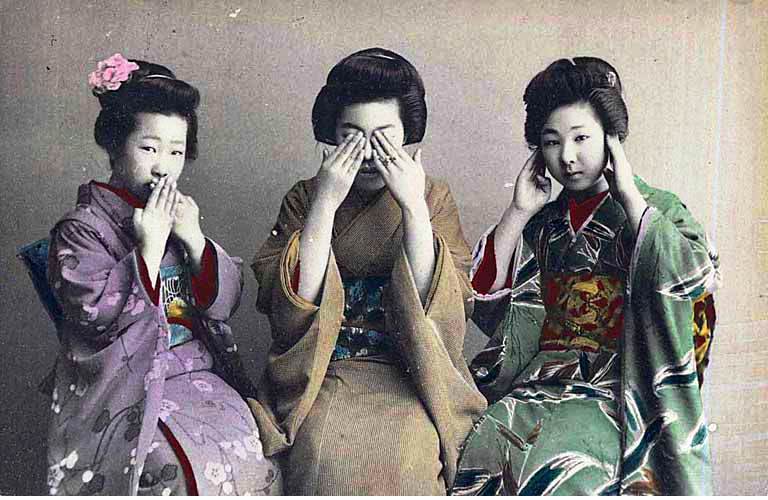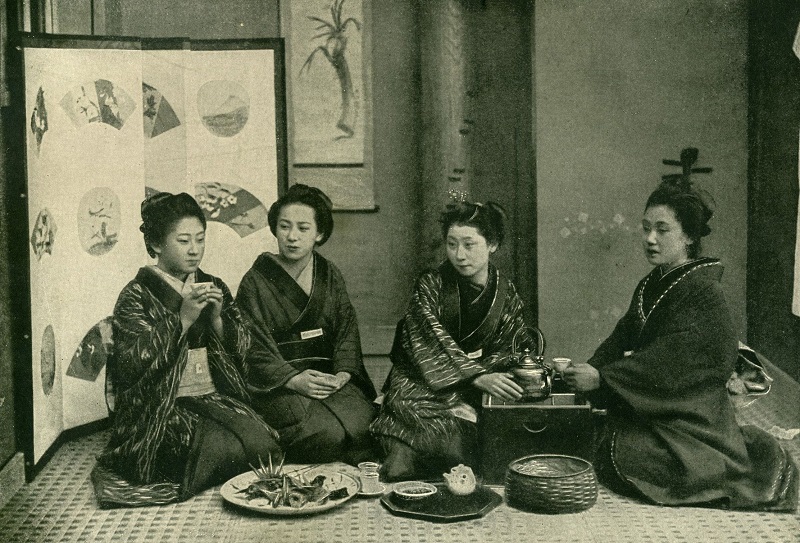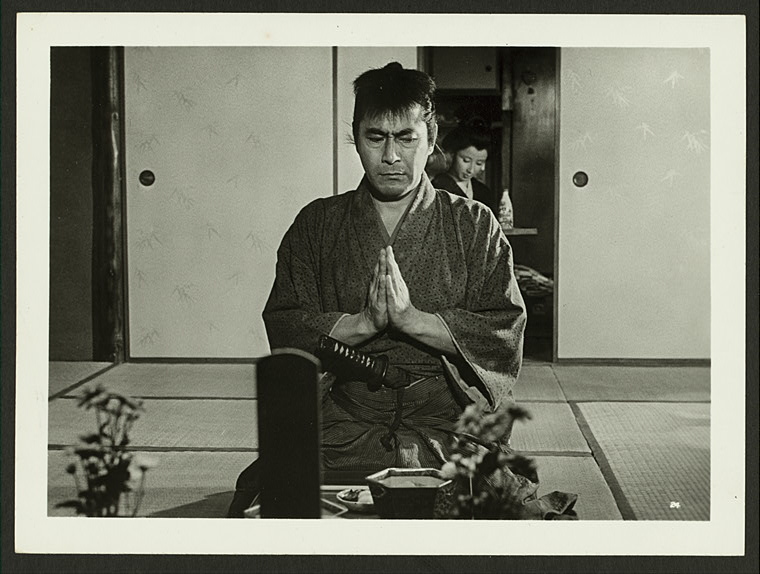
Generally, it is despicable for a warrior to use many words. -Daidoji Yuzan
Bushido holds silence in high esteem. Quietude seeks to measure words, speaking only what is kind, necessary, and helpful, and so respecting the value and danger of words. Once you say something, the words are no longer yours. They can be interpreted in ways you didn’t intend. Speaking on emotion and impulse can lead you to hurt others and yourself. You may be able to apologize or correct a misunderstanding, but people remember your words regardless. Unlike with writing, which gives you the chance to revise until it is clear, speaking is immediate. That immediacy is speaking’s curse and its strength. Immediacy allows for easier and faster communication, but it also allows your tongue to run ahead of your mind. The more words you speak, the more chance your tongue has to run out of your control.
Much of the problem with speech is how it become self-referential. Each of us sits trapped inside our own minds, aware of only what we are thinking in a direct way. We don’t have access to the direct thoughts of others. Speaking and writing are indirect communication compared to thinking. Because of this trapped nature, we tend to reference ourselves often in speaking. After all, it is an expression of how we understand reality. However, self-referencing feeds the ego. If you are familiar with Zen or other branches of Buddhism, you will understand that the ego is a delusion. It’s a mental construct that attempts to validate itself by posing as you, as your identity. So self-referencing in conversation runs the risk of feeding the ego. As does boastfulness. Once the ego grabs your tongue, words flow. Words that you often regret because they harm others, turn around and harm yourself, or because the words reveal too much to the wrong people. The ego’s limitless need for validation leads to this problem. As Yamaga Soko wrote:
Because speech emerges externally from internal activity, whenever you are restless you speak thoughtlessly. You’re apt to be garrulous and flippant, speaking immoderately, talking too much, perhaps making up tall tales for the occasion, perhaps angering others by intemperate words.
This is the ego at work. In the moment, reigning in the ego’s chatter can be hard. We’ve all had the misfortune of being around someone who just won’t stop talking, even if it isn’t about themselves. I catch myself doing this when I slip into “teacher mode,” as I call it. My tongue will gallop away with sharing what I’ve learned, often to people who aren’t receptive. In the end, this isn’t because I want to teach them, but because my ego wants to puff itself up by showing off the knowledge I have and to “correct” people’s thinking (mistaken by my ego’s assessment). This chatter, which happens often when I’m tired, doesn’t lead to anyone have an ahah! moment. Rather, it most often creates the backfire effect: people becoming even more entrenched in their beliefs despite opposing evidence. Although I know better, it takes little for the internal activity of my ego to take hold. Think of a situation where this happened to you.
Speech and conduct are externalizations of what is within, so when they remain silent and say and do nothing, the wise and the foolish cannot be distinguished. Once they speak or act, they produce differences great as sky from earth. –Tsugaru Kodoshi
Until you speak or act, no one knows what is going on inside you. The ego sits unrecognized, which is something it cannot endure. Bushido teaches silence because silence over time stills the mind, so that when you do speak, your words ought to be calmer and more measured. It’s a mixed practice. Sometimes it works; other times it makes the ego more desperate, at least at first. Many of the writers also advocate for silence because words prove deadly and also a waste of limited life. Futile arguments could escalate into duels between samurai, ending with someone dying as this double-meaning quote suggests:
When you always keep death in mind, when you speak and when you reply to what others say, you understand the weight and significance of every word as a warrior by profession, so you do not engage in futile arguments. –Taira Shigesuke
Quietude is hard to practice. I fail at it daily. American culture, after all, looks down on quiet people. As a librarian, I was expected to converse, and many isolated people visit the library looking for social interaction. All of this combines into pressure to chatter. It takes only a small lapse to allow the ego to take hold of a conversation, to make it self-referential and offer it a chance to validate itself. Too often, I catch myself thinking more of what to say next than truly listening. This, too, is the ego at work because you are preoccupied with your internal state. As Takuan Soho wrote:
If there is some thought within the mind, though you listen to words spoken by another, you will not really be able to hear him. This is because your mind has stopped with your own thoughts.
Training to be silent, to not be self-referential, to listen instead of thinking of your reply isn’t easy. Every conversation offers a chance to practice, but in the moment, often all you can think about is the conversation itself. It takes a lot of bandwidth (at least for me) to hold a conversation. Often, I don’t have much left for the mindfulness necessary to measure my words, even when my mind is in the proper state as Ekiken Kaibara describes it:
Your mind should always be composed, quiet, and without any sort of restlessness. It should be at peace. Your words, especially, should be calm and few in number. You should not talk about things of no use.
Speaking about things of no use varies by individual in addition to trite things like gossip. But when your bandwidth is taxed, you will slip into speaking of things of no use just to fill in the silence. While it’s better to let the silence fall, the pressure to fill that discomfort zone can be powerful, even when your mind is calm.
It takes few words to unsettle the mind sometimes, especially when those words target something you hold dear. I hold science, history, and learning dear. So, when people attack the foundation of learning, my mind becomes troubled and I fall into “teacher mode.” Then, I talk about things of no use because the other person is, usually, closed to anything outside their own perspective. Tilting at the windmill doesn’t help and often makes the situation (and what I deem wrong thinking–the ego again) worse. Yet tilt I do. I’m sure you also have situations like this. The urge to “correct” becomes irresistible for your ego and for your principles. And once your mind is unsettle, all efforts to control your tongue and your galloping thoughts fail.

I aim to avoid letting my mind become unsettled in the first place, as Ekiken and so many other Bushido (and other traditions) advise. Part of this requires rest. Exhaustion makes it easier for the ego to take control. Another part involves opinion. We tend to hold our opinions close to our sense of identity. So, when an opinion comes under attack, even if indirectly, our ego feels attacked. Learning to have no opinion and subject what opinions you have to regular scrutiny as you learn helps curb this tendency to chatter. But you will fail. Often. Having no opinion helps bring stillness to your mind because whatever it is doesn’t enter your mental space. When you stop following celebrity gossip, news, politics, and everything else that demands you to take a side or form an opinion, your mind becomes lighter. None of these things matter on a personal level in most cases anyway. They sit outside your sphere of control, so why waste life on them? So too with the opinions of those you converse with. Their minds sit outside your ability to control, so why allow their opinion to upset your tranquility?
All of this sounds good, but in the moment, emotions happen. Opinions form. Chatter happens, and sometimes you say words you regret. You can only learn the lessons and move on, working on stilling your mind, doing away with opinions about what doesn’t concern you, and working on reducing the influence of your ego on how you speak and live.
It is a good thing to be willing to change when you’re wrong. It is most problematic to insist on thinking and behaving in a certain way, regardless of good or bad, just because that’s what you’ve been doing. –Shiba Yoshimasa



